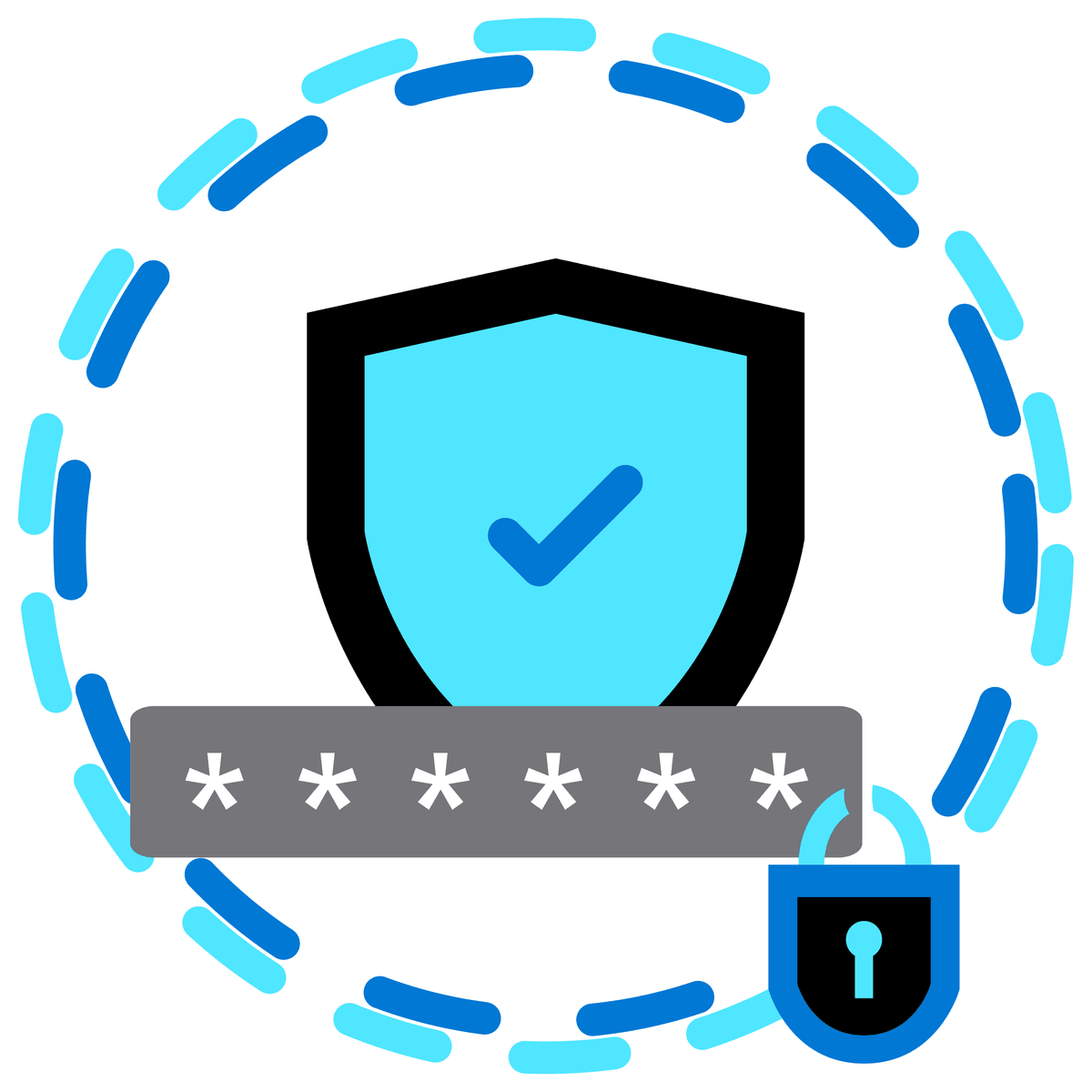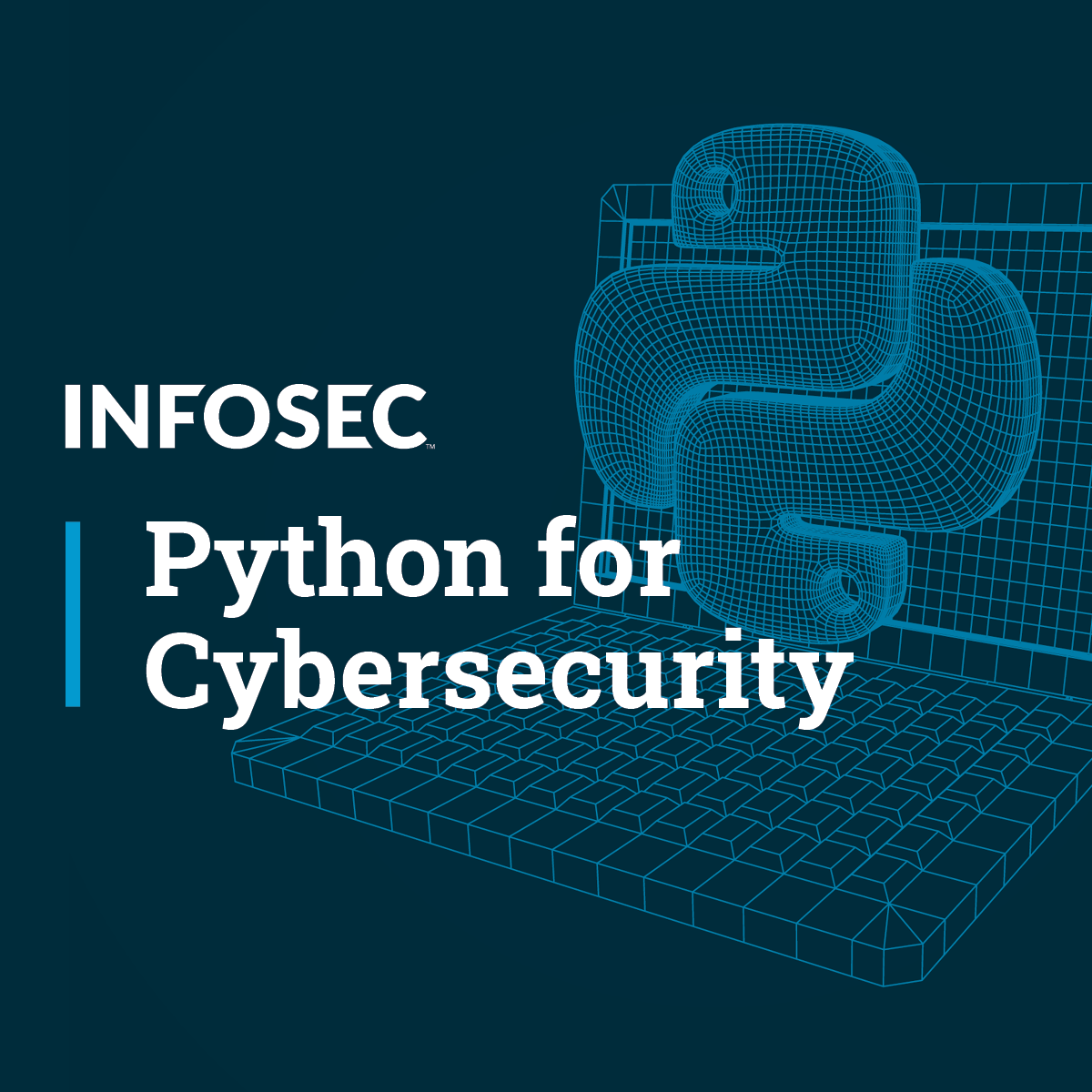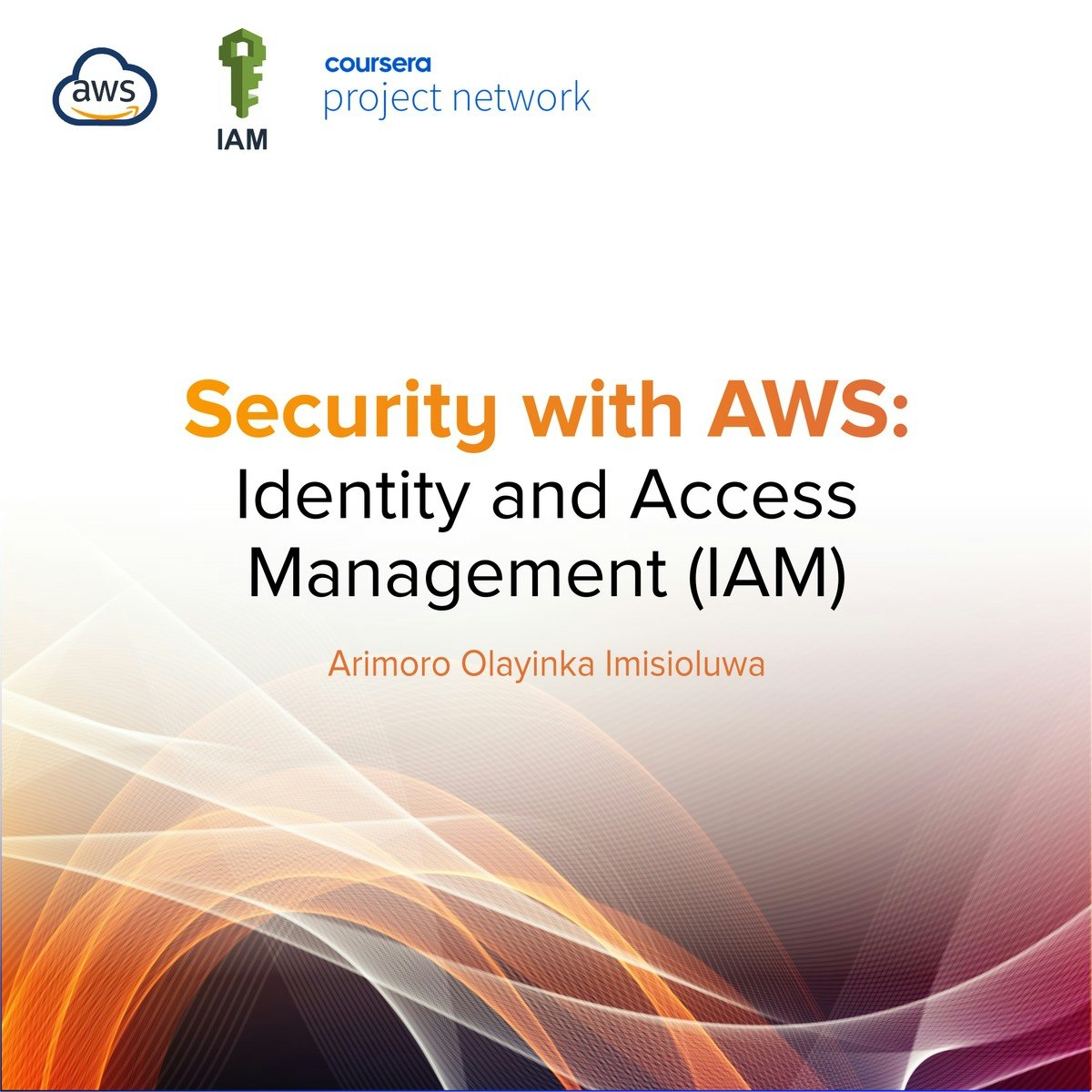IT Security Specialist
IT Security Specialist: Protecting the Digital Frontier
An IT Security Specialist, often called a Cybersecurity Specialist, plays a crucial role in protecting an organization's computer systems and networks. They are the digital guardians, responsible for safeguarding sensitive information from unauthorized access, cyberattacks, and data breaches. Think of them as the security guards, detectives, and strategic planners for a company's digital assets.
Working in IT security can be incredibly engaging. You'll constantly be learning about new threats and technologies, essentially solving complex puzzles to stay ahead of malicious actors. It's a field that demands continuous learning and adaptation, offering the excitement of being on the front lines of digital defense and the satisfaction of protecting critical infrastructure and data.
What Does an IT Security Specialist Do?
IT Security Specialists are vital defenders in today's increasingly digital world. Their primary mission involves implementing and monitoring security measures to protect computer networks and systems. This ensures the confidentiality, integrity, and availability of data, preventing costly breaches and maintaining operational continuity.
Their importance has grown significantly as organizations rely more heavily on technology and face a rising tide of sophisticated cyber threats. From preventing financial loss to protecting reputation and ensuring compliance with regulations, the work of these specialists underpins trust and stability in the digital ecosystem.
Key objectives often include conducting risk assessments to identify vulnerabilities, developing security policies and procedures, responding to security incidents, and ensuring the organization adheres to relevant laws and standards like GDPR or HIPAA. They strive to build a resilient security posture that can withstand and quickly recover from attacks.
Daily Tasks and Incident Response
A typical day for an IT Security Specialist involves a mix of proactive and reactive tasks. They might monitor networks for suspicious activity using Security Information and Event Management (SIEM) systems, conduct vulnerability assessments, and configure security tools like firewalls and intrusion detection systems. Patch management and updating security software are also routine activities.
When a security breach or incident occurs, the specialist shifts into response mode. This involves identifying the source and extent of the attack, containing the damage, eradicating the threat, and recovering affected systems. They meticulously document the incident and contribute to post-incident analysis to prevent recurrence.
Developing and testing incident response protocols are crucial proactive measures. This ensures that when an actual incident happens, the team can react swiftly and effectively, minimizing downtime and data loss. Regular drills and simulations help refine these plans.
These courses provide foundational knowledge and practical skills for managing security incidents and understanding core cybersecurity concepts.
Compliance and Regulations
Ensuring compliance with industry regulations and data protection laws is a significant responsibility. Specialists must stay informed about standards relevant to their industry, such as HIPAA for healthcare, PCI DSS for payment card data, or GDPR for personal data privacy in Europe.
They work to implement technical and procedural controls required by these regulations. This often involves conducting audits, generating compliance reports, and collaborating with legal and management teams to ensure organizational adherence. Failure to comply can result in hefty fines and reputational damage.
Activities might include configuring systems to meet specific security benchmarks, managing access controls strictly, ensuring data encryption standards are met, and maintaining detailed logs for audit trails. They educate employees on compliance requirements and security best practices.
Understanding security standards and compliance frameworks is critical. These resources delve into ISO standards and compliance management.
Career Progression Pathways
The journey in IT security often starts with foundational knowledge and progresses through specialized roles with increasing responsibility. Understanding this path helps aspiring professionals set realistic goals and plan their development.
From Entry-Level to Specialization
Many begin in roles like Security Analyst, IT Support with security focus, or Network Administrator. These positions provide exposure to fundamental concepts like network traffic, system administration, and basic security tools. Responsibilities might include monitoring alerts, basic troubleshooting, and assisting senior specialists.
Mid-career professionals often transition into more specialized roles based on their interests and expertise. Examples include Penetration Tester (ethical hacker), Security Engineer (designing and building secure systems), or Security Consultant (advising organizations).
Certifications like CompTIA Security+, Cisco Certified Network Associate (CCNA) Security, or (ISC)² Systems Security Certified Practitioner (SSCP) are often pursued at this stage to validate skills and knowledge.
These courses cover foundational CCNA security concepts and SSCP preparation.
Advanced Roles and Leadership
With significant experience and proven expertise, specialists can move into advanced technical or leadership roles. A Security Architect designs complex security systems and infrastructure, while a Security Manager oversees security teams and operations.
The pinnacle of the career path is often the Chief Information Security Officer (CISO). The CISO is a senior executive responsible for the organization's overall information security strategy, policy, and management, aligning security initiatives with business goals.
Advanced certifications like Certified Information Systems Security Professional (CISSP), Certified Information Security Manager (CISM), or Certified Ethical Hacker (CEH) are highly valued at these senior levels. These demonstrate deep technical knowledge and management capabilities.
This course explores the path towards becoming a CISO.
This book provides insights into security engineering principles, relevant for architects and senior engineers.
Formal Education Pathways
While practical experience and certifications are crucial, a formal education can provide a strong theoretical foundation and open doors to certain opportunities in IT security. Universities and colleges offer various programs relevant to the field.
Degrees and Academic Focus
Bachelor's degrees in Computer Science, Information Technology, Cybersecurity, or related fields are common starting points. These programs typically cover core computing principles, networking, operating systems, programming, and introductory security concepts.
Some individuals pursue Master's degrees specializing in Cybersecurity or Information Assurance for deeper knowledge and research opportunities. These advanced degrees can be beneficial for roles requiring specialized expertise or for aiming towards leadership positions.
Research opportunities in cybersecurity are growing within academia. PhD programs allow for deep investigation into specific areas like cryptography, network security protocols, malware analysis, or usable security, contributing new knowledge to the field.
These courses offer university-level introductions to computer and cybersecurity fundamentals.
These books offer comprehensive coverage suitable for academic study.
Key Certifications
Industry certifications are highly regarded in the IT security field, often complementing or even substituting for formal degrees depending on the role and employer. They demonstrate practical skills and up-to-date knowledge of specific technologies or domains.
Foundational certifications like CompTIA Security+ are excellent starting points. Intermediate and advanced certifications target specific areas: CISSP (broad security management), CEH (ethical hacking), CISM (security management), CCSP (cloud security), and vendor-specific certifications (e.g., Cisco, Microsoft, AWS security certs) are valuable.
Choosing the right certification depends on career goals. Researching job descriptions for desired roles often reveals preferred or required certifications. Maintaining certifications usually requires ongoing education, ensuring professionals stay current.
Explore courses designed to prepare you for popular certifications like CEH or vendor-specific exams.
Online Learning and Self-Guided Training
The path to becoming an IT Security Specialist isn't limited to traditional academic routes. Online learning platforms and self-guided study offer flexible and accessible ways to acquire necessary skills, especially for career changers or those supplementing existing knowledge.
Viability of Online Skill Acquisition
Online courses absolutely provide a viable way to build foundational and specialized IT security skills. Platforms host courses covering everything from networking basics and operating systems to advanced penetration testing and cloud security, often taught by industry experts.
The flexibility of online learning allows individuals to study at their own pace and schedule, fitting education around work or other commitments. Many courses offer hands-on labs and projects, providing practical experience vital for this field. Using resources like OpenCourser can help learners discover and compare thousands of courses from various providers.
For those new to the field or making a career pivot, starting this journey can feel daunting. Remember that many successful professionals began with self-study. Online learning empowers you to take control of your education. Be patient with yourself, celebrate small victories, and focus on consistent progress rather than immediate mastery. The key is persistence and a genuine curiosity about the field.
These courses offer broad introductions suitable for online learners starting their journey.
Building Practical Labs and Projects
Theoretical knowledge is essential, but practical skills are paramount in IT security. Setting up a home lab using virtualization software (like VirtualBox or VMware) allows learners to experiment safely with operating systems, networking configurations, and security tools without affecting their primary system.
Many online courses incorporate virtual labs or guide students through setting up their own. Engaging in capture-the-flag (CTF) competitions, available on platforms like TryHackMe or Hack The Box, provides gamified, hands-on hacking and defense challenges. Contributing to open-source security projects is another excellent way to gain experience and build a portfolio.
Building projects, such as setting up a secure home network, automating a security task with a script, or analyzing malware samples in a safe environment, demonstrates initiative and practical ability to potential employers. Documenting these projects on platforms like GitHub can showcase your skills.
These courses emphasize hands-on labs and practical skill-building using platforms like TryHackMe or specific tools.
Supplementing Formal Education
Online courses are not just for self-starters; they are powerful tools for students in formal degree programs and working professionals. University courses may cover theory well but sometimes lack depth in specific, rapidly evolving tools or techniques. Online courses can fill these gaps.
Students can use online resources to deepen their understanding of complex topics, prepare for industry certifications alongside their degree, or learn niche skills not covered in their curriculum. This proactive approach can significantly enhance their employability upon graduation.
For professionals already in IT or security roles, online learning facilitates continuous professional development. It's an efficient way to learn about new threats, master new security platforms (like specific cloud security services or SIEM tools), or acquire skills for career advancement without committing to another full degree program. OpenCourser's Learner's Guide offers tips on integrating online learning effectively.
Essential Technical Skills and Tools
Success as an IT Security Specialist hinges on a solid grasp of fundamental technical concepts and proficiency with specific tools used for defense, monitoring, and analysis.
Network Security Fundamentals
A deep understanding of networking is non-negotiable. This includes the TCP/IP model, IP addressing and subnetting, routing protocols, DNS, DHCP, and common network protocols (HTTP, SSL/TLS, SSH, etc.). Understanding how data flows across networks is key to identifying and mitigating threats.
Knowledge of network security devices like firewalls, intrusion detection/prevention systems (IDS/IPS), and proxies is essential. Specialists must know how to configure, manage, and interpret logs from these devices to enforce security policies and detect malicious activity.
Understanding network segmentation, VPNs, and wireless security protocols (like WPA2/3) is also critical for designing and maintaining secure network architectures. Explore OpenCourser's IT & Networking and Information Security categories for relevant courses.
These courses cover network defense essentials and specific network security tools.
This book is a classic resource for network security fundamentals.
Key Security Tools and Frameworks
Proficiency with a range of security tools is vital. SIEM (Security Information and Event Management) systems like Splunk or Elastic Stack are used for log aggregation and analysis to detect threats. Vulnerability scanners like Nessus or OpenVAS help identify weaknesses in systems and networks.
Penetration testing frameworks such as Metasploit or tools included in Kali Linux distributions are used by ethical hackers to simulate attacks and test defenses. Network analysis tools like Wireshark or tcpdump are indispensable for inspecting network traffic and diagnosing issues.
Familiarity with Endpoint Detection and Response (EDR) solutions, firewalls (like Palo Alto Networks or FortiGate), and cloud security platforms (AWS Security Hub, Azure Security Center) is increasingly important as infrastructure diversifies.
These courses provide training on specific security tools and platforms.
Programming and Automation
While not always strictly required for entry-level roles, programming skills, particularly in scripting languages like Python, are increasingly valuable. Python is widely used for automating repetitive security tasks, analyzing large datasets, developing custom security tools, and interacting with APIs.
Scripting allows specialists to automate tasks like log analysis, vulnerability scanning report parsing, or orchestrating responses to common alerts. This frees up time for more complex analysis and strategic thinking. Bash scripting is also useful for Linux-based environments.
Understanding basic programming concepts helps in analyzing malware, understanding application vulnerabilities (like those in the OWASP Top 10), and collaborating effectively with development teams to build secure software (DevSecOps).
This course focuses on using Python for specific offensive security tasks.
This book is a foundational text on cryptography, often involving programming concepts.
Emerging Trends in Cybersecurity
The cybersecurity landscape is constantly evolving, driven by new technologies and attacker methodologies. Staying aware of emerging trends is crucial for IT Security Specialists to remain effective.
AI/ML in Threat Detection
Artificial Intelligence (AI) and Machine Learning (ML) are increasingly being integrated into security tools. These technologies can analyze vast amounts of data to identify subtle patterns indicative of new or sophisticated threats that signature-based systems might miss. They enhance anomaly detection, behavioral analysis, and predictive threat intelligence.
However, attackers are also exploring AI/ML to craft more sophisticated attacks, such as adaptive malware or hyper-realistic phishing campaigns. Specialists need to understand both the defensive capabilities and the potential offensive uses of AI/ML in cybersecurity.
The adoption of AI requires specialists to learn how to manage, tune, and interpret the outputs of these systems effectively, understanding their strengths and limitations to avoid over-reliance or misinterpretation of alerts.
This book touches upon AI security considerations.
Zero Trust Architecture
The traditional "castle-and-moat" security model (strong perimeter, assumed trust inside) is proving insufficient. Zero Trust Architecture (ZTA) is gaining prominence, operating on the principle of "never trust, always verify." It assumes that threats can exist both outside and inside the network.
ZTA requires strict identity verification for every user and device trying to access resources, regardless of location. It leverages micro-segmentation, least privilege access controls, and continuous monitoring to limit potential damage if a breach does occur.
Implementing Zero Trust is a significant shift requiring changes in infrastructure, policies, and mindset. Specialists need to understand ZTA principles and technologies like multi-factor authentication (MFA), identity and access management (IAM), and endpoint security to help organizations transition.
Cloud Security Challenges
As organizations migrate more services and data to the cloud (AWS, Azure, Google Cloud), new security challenges emerge. Misconfigurations of cloud services are a common source of breaches, highlighting the need for expertise in cloud-specific security controls.
Managing security across hybrid (on-premises and cloud) and multi-cloud environments adds complexity. Specialists must understand shared responsibility models (what the cloud provider secures vs. what the customer secures) and master cloud-native security tools for identity management, data protection, network security, and compliance in the cloud.
Issues like securing containerized applications (Docker, Kubernetes), managing serverless functions, and ensuring data privacy across different cloud regions require specialized knowledge. The Certified Cloud Security Professional (CCSP) is one certification addressing these skills.
These courses and book address cloud security concepts and tools.
Ethical and Legal Considerations
Working in IT security involves navigating complex ethical and legal landscapes. Specialists often handle sensitive data and possess powerful technical skills, necessitating a strong ethical compass and awareness of legal boundaries.
Data Privacy and Regulations
Protecting personal and sensitive data is paramount. Specialists must understand and help enforce data privacy regulations like GDPR, CCPA, and HIPAA. This involves implementing technical controls (e.g., encryption, access controls) and adhering to organizational policies regarding data collection, storage, and usage.
Ethical considerations arise when balancing security needs with individual privacy. For example, extensive employee monitoring might enhance security but could infringe on privacy expectations. Specialists must operate within legal frameworks and ethical guidelines established by the organization and professional bodies.
Handling breach notifications requires careful adherence to legal requirements, ensuring timely and accurate communication with affected individuals and regulatory bodies, as mandated by laws like the EU's GDPR.
This book explores the psychological and social aspects related to digital interactions and privacy.
Ethical Hacking Boundaries
Ethical hacking, or penetration testing, involves simulating attacks to find vulnerabilities. However, this must always be conducted with explicit, documented permission from the system owner. Unauthorized access, even with good intentions, constitutes illegal hacking.
Specialists engaged in ethical hacking must operate within a defined scope, outlining which systems and methods are permissible. They must handle discovered vulnerabilities responsibly, reporting them privately to the owner for remediation rather than disclosing them publicly.
The line between ethical hacking and malicious activity can be thin. Maintaining professionalism, adhering to legal agreements (like non-disclosure agreements), and following established ethical guidelines (such as those from EC-Council for CEH) are crucial.
These courses cover ethical hacking principles and practices.
This book delves into the mindset and techniques often associated with hacking, emphasizing the human element.
Whistleblower Dilemmas
Occasionally, security specialists might uncover unethical or illegal activities within their own organization, such as deliberate negligence regarding known critical vulnerabilities or misuse of customer data. This can create a whistleblower dilemma.
Deciding whether and how to report such findings involves complex ethical and personal considerations. Reporting internally through established channels is typically the first step. If internal reporting fails or poses risks, external reporting (to regulatory bodies or law enforcement) might be considered.
Potential whistleblowers must weigh the ethical obligation to report wrongdoing against potential career repercussions or legal challenges. Understanding whistleblower protection laws and seeking legal counsel are important steps in navigating such situations.
Challenges Faced by IT Security Specialists
While rewarding, a career in IT security comes with unique pressures and challenges. Awareness of these hurdles can help individuals prepare and develop coping strategies.
Constant Threat Evolution
The threat landscape changes constantly. Attackers develop new techniques, exploit previously unknown vulnerabilities (zero-days), and adapt their strategies rapidly. Specialists must engage in continuous learning to stay ahead, which can be demanding.
This requires regularly reading security news, attending webinars and conferences, participating in training, and experimenting with new tools and technologies. The need to constantly update knowledge can feel overwhelming at times.
Staying current isn't just about technical skills; it also involves understanding evolving attacker motivations, geopolitical factors influencing cybercrime, and changes in regulatory landscapes. This dynamic nature is part of the job's excitement but also a source of pressure.
Balancing Security with Usability
There is often a tension between implementing robust security measures and ensuring systems remain usable and efficient for employees and customers. Overly complex security procedures can hinder productivity and lead users to seek workarounds, potentially creating new security risks.
Specialists must find pragmatic solutions that provide adequate security without unduly impacting workflows. This requires strong communication skills, understanding business needs, and the ability to explain risks and trade-offs clearly to non-technical stakeholders.
Finding this balance involves careful risk assessment, user education, and selecting security controls that are effective yet relatively unobtrusive. It's a continuous negotiation between protection and practicality.
Burnout Prevention Strategies
The high-stakes nature of the job, the constant pressure to stay ahead of threats, long hours during incident response, and the feeling of being perpetually "on call" can lead to burnout. Recognizing the signs and implementing prevention strategies is crucial for long-term career sustainability.
Strategies include setting clear boundaries between work and personal life, taking regular breaks and vacations, seeking support from colleagues and mentors, and practicing stress management techniques. Organizations also play a role by fostering supportive cultures, ensuring adequate staffing, and providing resources for mental well-being.
For those considering this career or already in it, remember that it's a marathon, not a sprint. Prioritizing well-being isn't a sign of weakness but a requirement for sustained performance. Finding aspects of the job you genuinely enjoy and seeking roles that align with your interests can also help maintain motivation. Don't hesitate to seek help if you feel overwhelmed; the security community often supports its members.
Frequently Asked Questions
Can you enter the IT Security field without a degree?
Yes, it is possible to enter the IT security field without a traditional four-year degree. Many successful professionals build their careers through a combination of certifications, hands-on experience (often starting in related IT roles like help desk or system administration), and self-study, including online courses.
Industry certifications like CompTIA Security+, Network+, or vendor-specific credentials can demonstrate foundational knowledge. Building a portfolio of projects, participating in CTFs, and contributing to open-source projects can showcase practical skills to potential employers.
While some organizations, particularly larger or more traditional ones, may still prefer or require degrees for certain roles, the emphasis in cybersecurity is increasingly on demonstrable skills and relevant experience. Persistence and a passion for learning are key.
How does remote work impact security roles?
Remote work has significantly impacted IT security roles, both in terms of opportunities and challenges. Many security positions, particularly analyst, consultant, and architect roles, can be performed effectively remotely, increasing job flexibility and access to a wider talent pool.
However, securing a remote workforce presents new challenges. Specialists must address risks associated with home networks, personal devices (BYOD), secure remote access (VPNs, ZTA), and ensuring compliance when employees work from various locations. Cloud security skills become even more critical.
The demand for specialists skilled in securing remote work environments has grown. Roles focused on endpoint security, cloud security, identity management, and developing secure remote access policies are increasingly important.
What certifications offer the best Return on Investment (ROI)?
The ROI of a certification depends heavily on individual career goals, experience level, and the specific job market. However, certain certifications are widely recognized and often correlate with higher earning potential or better job prospects.
For entry-level, CompTIA Security+ provides a strong foundation. Mid-career, CISSP is often considered the gold standard for management and broad security knowledge. For technical specialization, certifications like CEH (ethical hacking), OSCP (hands-on penetration testing), GCIH (incident handling), or cloud-specific certs (AWS Security Specialty, Azure Security Engineer) are highly valued.
Researching job postings for desired roles is the best way to identify which certifications are most in demand in your target area. Remember that certifications complement experience; they rarely replace it entirely.
Is Artificial Intelligence (AI) replacing security professionals?
AI is transforming cybersecurity, but it's highly unlikely to replace human professionals entirely in the foreseeable future. AI tools are augmenting human capabilities by automating repetitive tasks, analyzing vast datasets faster, and detecting novel threats more effectively.
However, AI systems require human oversight for configuration, interpretation of results, strategic decision-making, and handling complex, nuanced situations that require critical thinking and ethical judgment. Attackers also use AI, necessitating human ingenuity to devise countermeasures.
The role of the IT Security Specialist is evolving. Professionals need to learn how to leverage AI tools effectively, understand their limitations, and focus on higher-level skills like strategy, risk management, incident response coordination, and security architecture design. AI is becoming a powerful tool in the specialist's arsenal, not a replacement.
What are typical salary progression benchmarks?
Salaries for IT Security Specialists vary widely based on location, experience, education, certifications, industry, and specific role. Entry-level positions like Security Analyst might start around $60,000 - $80,000 USD annually in many US metropolitan areas.
Mid-career professionals with several years of experience and relevant certifications (e.g., Security Engineers, Penetration Testers) can often earn $90,000 - $130,000+. Senior roles like Security Architects, Managers, or CISOs command significantly higher salaries, often exceeding $150,000 - $200,000+, potentially much more depending on the organization's size and complexity. According to the U.S. Bureau of Labor Statistics, the field shows strong growth and competitive wages.
These are general estimates, and specific compensation depends heavily on the factors mentioned. Sites like Salary.com, Glassdoor, or Robert Half's Salary Guide can provide more tailored estimates based on location and role.
What about work-life balance?
Work-life balance in IT security can be challenging but achievable. The perception of constant high alert and long hours during incidents is partly true, especially in incident response or Security Operations Center (SOC) roles which may involve shift work or on-call duties.
However, many roles, such as compliance, risk assessment, security architecture, or consulting, can offer more predictable hours. Organizational culture plays a significant role; companies that prioritize employee well-being, adequate staffing, and clear on-call rotations tend to offer better balance.
Individuals can actively manage their balance by setting boundaries, communicating needs, utilizing time management techniques, and choosing roles or organizations that align with their lifestyle preferences. While demanding, a fulfilling career with reasonable work-life balance is attainable in IT security.
Embarking on a career as an IT Security Specialist is a commitment to continuous learning in a dynamic and critical field. It offers intellectually stimulating challenges and the profound satisfaction of protecting vital digital assets. With dedication, the right resources like those found on OpenCourser, and a proactive approach to skill development, it can be an exceptionally rewarding path.



































